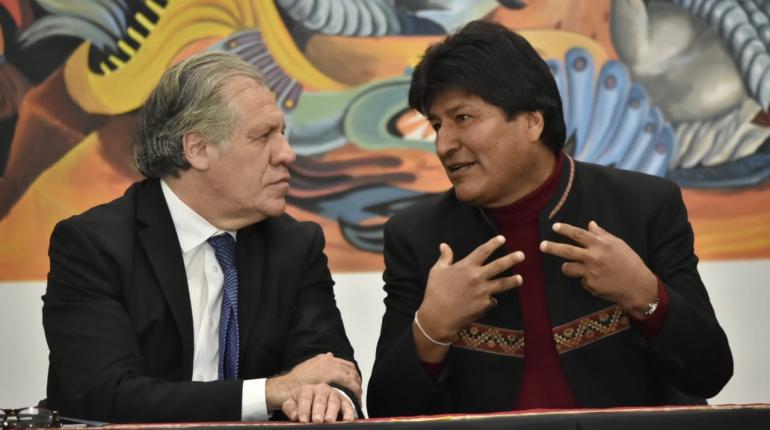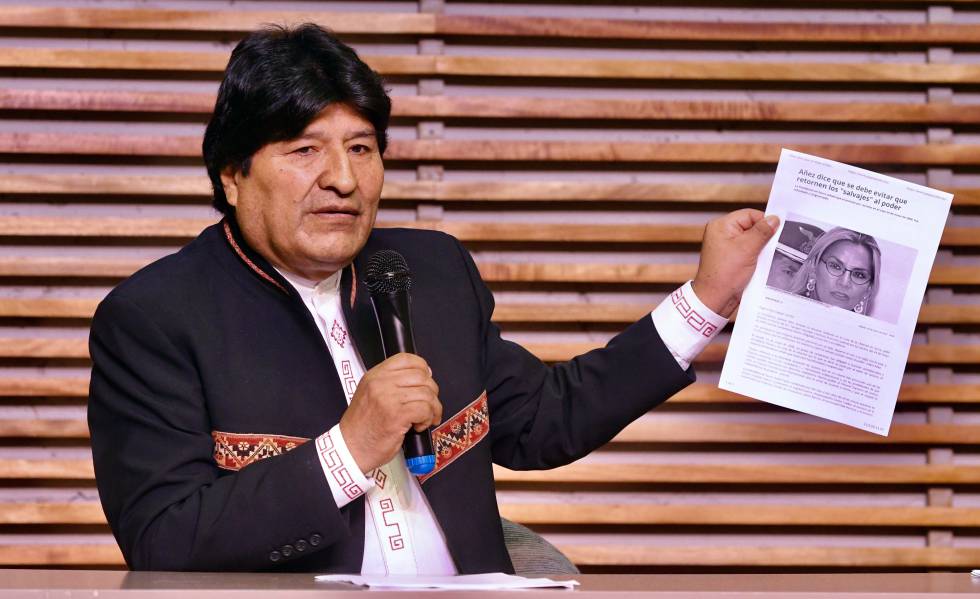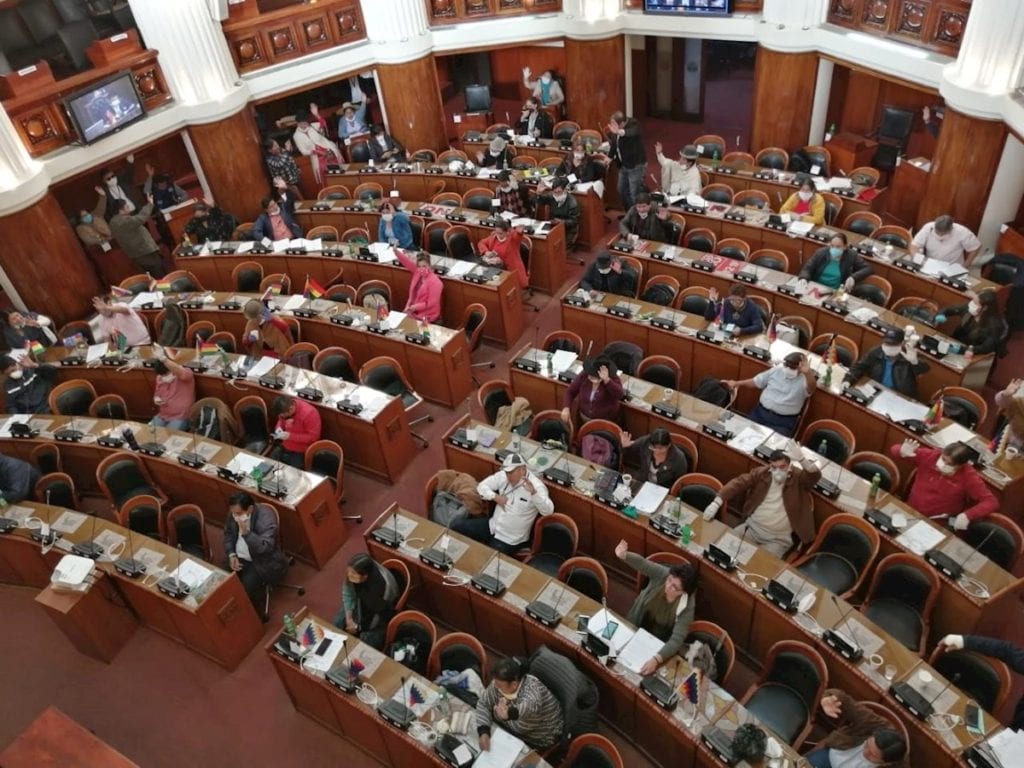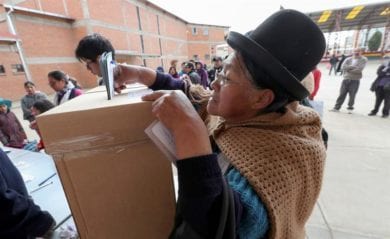The election campaign in Bolivia, dedicated to the new electoral process, is gaining momentum even in the midst of the coronavirus pandemic. On June 7, the newspaper “The New York Times” published an article that again touched on the results of the elections held in that Latin American country last October, the results of which were canceled. So was there a coup in Bolivia? What new details surfaced after 8 months of transitional government?
On October 25, the Bolivian Supreme Electoral Court announced the results of the October 20 elections, which were later canceled: Evo Morales (Juan Evo Morales Ayma) from the “Movement to Socialism” (Spanish – Movimiento al Socialismo, MAS) received 47.08 % of the vote, and his main opponent Carlos Mesa (Carlos Diego Mesa Gisbert) from the political bloc “Civil Society” (Spanish – Comunidad Ciudadana) – 36.51%. With such indicators of the ruling party at that time, it would have been possible to avoid a second round.

However, less than 12 days after the deadline for the submission of the report, the Organization of American States (OAS) considered that in the vote count, approved by the Bolivian Supreme Electoral Court, “manipulations with a computer system” of “this magnitude” were found that did not allow the election results to be confirmed . “For this reason, we are forced to declare that the first round of elections, held on October 20, should be canceled and the electoral process should begin again, and the first round will be held as soon as new conditions appear that will provide guarantees for its holding, including a new composition of the electoral body, ”suggested the November 10 the Secretary General of the OAS, Luis Almargo (Luis Leonardo Almagro Lemes).
The preliminary report, which appeared several hours before the resignation of Evo Morales, on November 10, 2019, approved in the public opinion, the national political system and the international community the thesis about falsification of election results in Bolivia, as the OAS Secretary General later admitted at the General Assembly session.
In one of the first conclusions of the OAS, it was emphasized that these manipulations and violations did not allow us to be sure as a result of the victory of Morales over the candidate Carlos Mesa. According to the organization’s report, on the contrary, based on the incontrovertible evidence found, it can be argued that a series of fraudulent operations were conducted aimed at changing the will expressed in polling stations on October 20, 2019. The OAS audit team then revealed malicious manipulation in the election results at two levels: at the level of acts, starting with falsification of signatures of members of electoral commissions, as well as at the level of processing the results, from redirecting the data stream to two hidden servers that were not controlled by the staff of the Supreme Electoral Court, which allowed processing the data and replacing the acts.

On March 2, the American newspaper “The Washington Post” published a sensational investigation by the Massachusetts Institute of Technology (MIT), which found that last year’s elections in Bolivia did not reveal “any reason to suspect fraud.” The analysis was signed by researchers John Curiel and Jack R. Williams, and was subsequently not recognized by the current Transitional Government of Jeanine Áñez (Jeanine Áñez Chávez). In addition, the document states that the OAS’s conclusions are “incorrect”, and that it is very likely that Morales reached the 10 percent margin needed to win the first round of elections last year.
On June 7, an article was published in “The New York Times” that spawned a new wave of political debate about the results of the 2019 electoral process. An article titled “A Bitter Choice. Fraud allegations. And now second thoughts”, written by Anatoly Kurmanaev and Maria Silvia Trigo, notes that the researchers found that the conclusion that votes for Evo Morales inexplicably increased as soon as the count was resumed was based on incorrect data and inadequate statistical methods. The independent study using data commissioned by the American newspaper found that the OAS methods were not correct and there was no statistical evidence of “fraud”. Earlier, another investigation found that the organization’s findings were “serious flaws.” The independent analysis referred to by the newspaper belongs to the Social Science Research Network (SSRN). The experts in this study were Francisco Rodriguez, economist who teaches Latin American studies at the Tulane University (in New Orleans), as well as Nicholas Idrobo, doctoral student at the University of Pennsylvania, and Dorothy Kronik, a specialist in Latin American politics at the University of Pennsylvania.

The following conclusions related to the “quantitative analysis” are given in the summary of the study: a) the obvious jump in the number of votes was actually a mistake of analysts; b) the analysis of changes within the total quantity mistakenly ignored the strong long-term trend; and c) almost identical patterns appear in the data of previous elections, the results of which were not disputed. According to experts, based on patterns that observers considered “inexplicable,” it is possible to identify the logic of the electoral process without resorting to the fact of fraud. Thus, several independent studies, which unite many of the existing ones, demonstrate that there were no serious violations in the October 20, 2019 elections in Bolivia that could invalidate the results according to which the “Movement to Socialism” party won.
Meanwhile, in Bolivia on June 9, an absolute majority of the lower house of Parliament approved a bill allowing for the holding of the general elections on September 6. The official statement of the Plurinational Legislative Assembly emphasizes that after hearing the arguments of the Chairman of the Supreme Electoral Court, Salvador Romero (Salvador Romero Ballivián), the deputies approved the proposal, amending the second Article of Law No. 1297 “On the postponement of General Elections”. Whether the long-awaited electoral process would realize in September and how the election race would take place, will primarily depend on the situation of the development of the COVID-19 virus in the region. However, it is very obvious that this electoral process will be a new milestone in the contemporary history of Bolivia.


